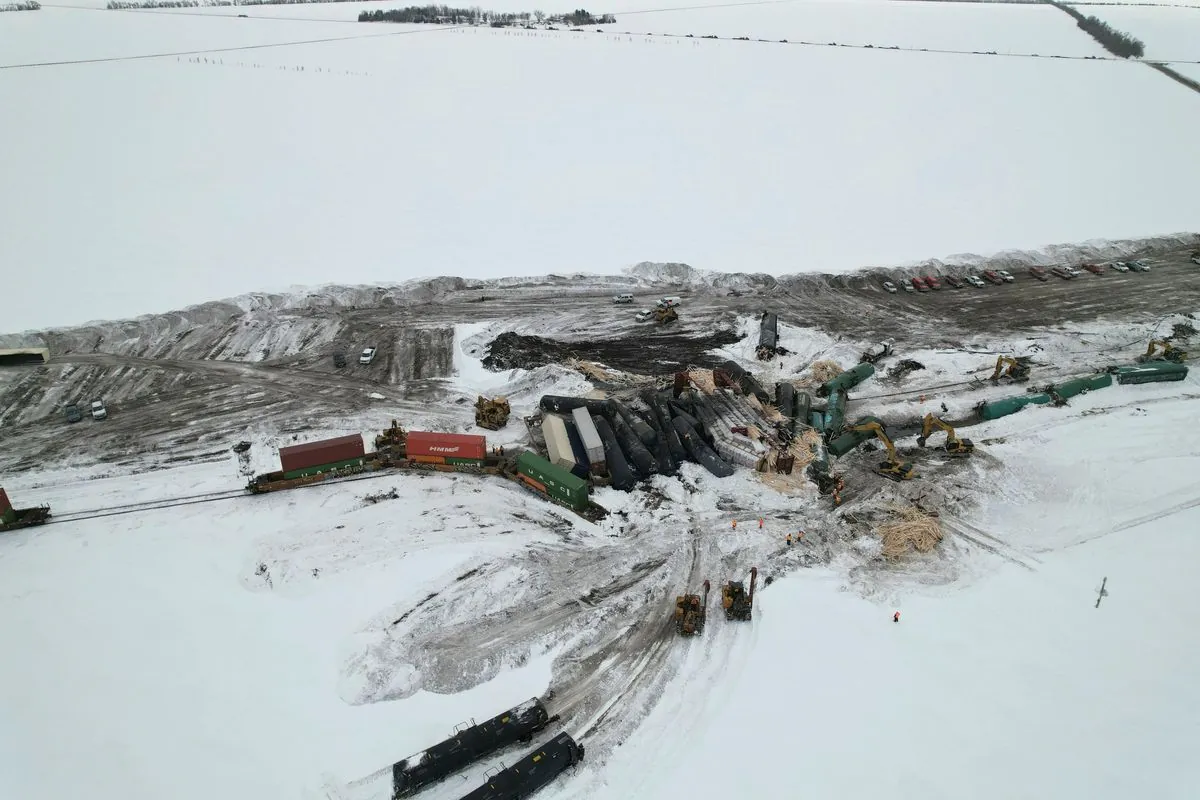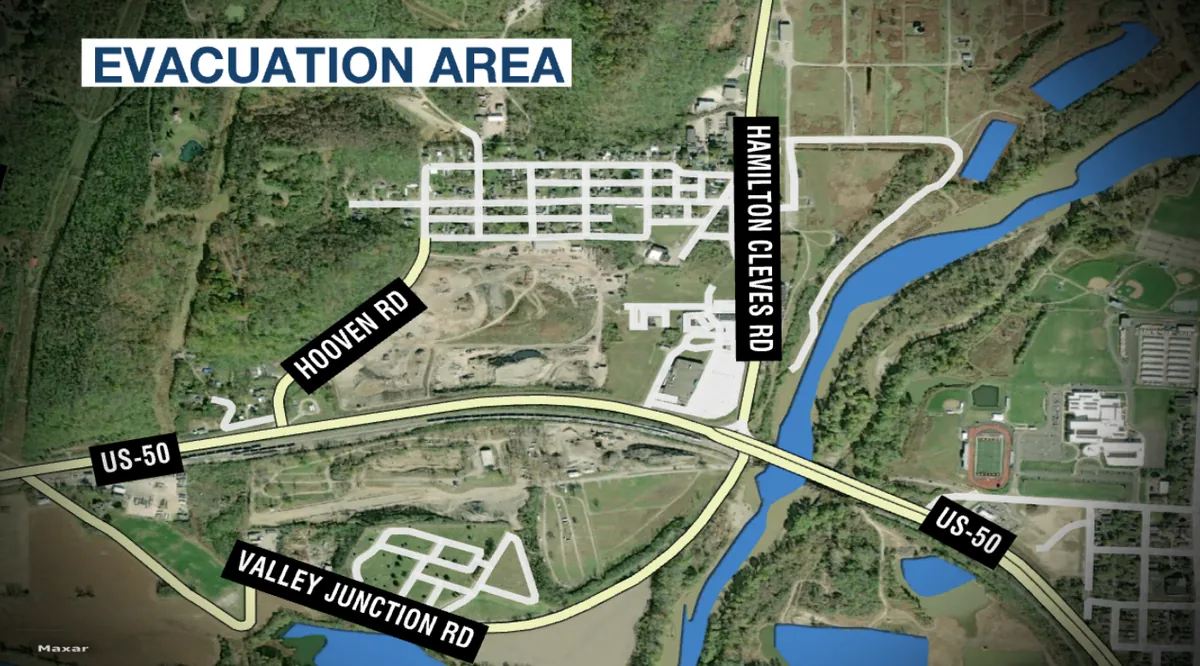Styrene Leak in Ohio Town Prompts Ongoing Evacuation
A toxic chemical leak from a railcar in Whitewater Township, Ohio, has led to an ongoing evacuation. Authorities continue to monitor the situation as residents await the all-clear.

In Whitewater Township, Ohio, a community of approximately 6,000 residents located west of Cincinnati, an evacuation order remains in effect following a styrene leak from a railcar. The incident, which began on 2024-09-24, has prompted local authorities to take swift action to ensure public safety.
Tom Ciuba, spokesperson for Central Railroad of Indiana, reported that the railcar is no longer venting styrene. Crews have been working diligently to cool the car with water, but its removal from the tracks is pending safety assessments. Central Railroad of Indiana, a short-line railroad operating in southeastern Indiana, is responsible for the tracks where the incident occurred.
The Hamilton County Emergency Management Agency, which coordinates disaster response in the area, advised residents within a half-mile radius of the leak site to evacuate immediately. This zone encompasses the area near U.S. Route 50 and the Great Miami River. U.S. Route 50, one of the original U.S. highways spanning 3,008 miles from Maryland to California, intersects with the 160-mile-long Great Miami River in this region.

Styrene, the chemical involved in this incident, is a synthetic substance widely used in the production of plastics, resins, and rubbers. First isolated from the Oriental sweetgum tree resin in 1831, styrene has been commercially produced since the 1920s, with Germany pioneering its industrial manufacture. The global styrene market was valued at $31.1 billion in 2020, reflecting its significant industrial importance.
However, styrene poses serious health risks. Short-term exposure can cause headaches, nausea, and respiratory issues, while long-term exposure may lead to more severe health problems, including organ damage. The International Agency for Research on Cancer classifies styrene as a possible human carcinogen, and the U.S. Environmental Protection Agency regulates it under the Clean Air Act.
As authorities continue to monitor air and water quality, several roads in the vicinity remain closed indefinitely. Local schools have also suspended operations in response to the leak. These precautions are crucial, given that styrene has a half-life of about two days in the atmosphere and can be biodegraded by certain microorganisms in soil and water.
The incident has drawn comparisons to the East Palestine train derailment that occurred 19 months ago in February 2023. That event, which took place on the other side of Ohio near the Pennsylvania border, involved the release of vinyl chloride and other hazardous chemicals. It led to increased scrutiny of the rail industry and the implementation of new safety regulations.
This recent styrene leak highlights the ongoing challenges in ensuring the safe transport of hazardous materials across the United States' extensive 140,000-mile freight railroad network. As cleanup efforts continue, residents of Whitewater Township anxiously await further updates and the eventual lifting of the evacuation order.
"We are closely monitoring the situation in Whitewater Township and working with local authorities to ensure the safety of residents and the environment. This incident underscores the importance of our ongoing efforts to enhance railroad safety regulations and emergency response protocols."
The Whitewater Township incident serves as a reminder of the critical role that safety devices, such as pressure relief valves, play in preventing and mitigating chemical leaks. As investigations continue, authorities will likely focus on determining the cause of the leak and implementing measures to prevent similar incidents in the future.


































